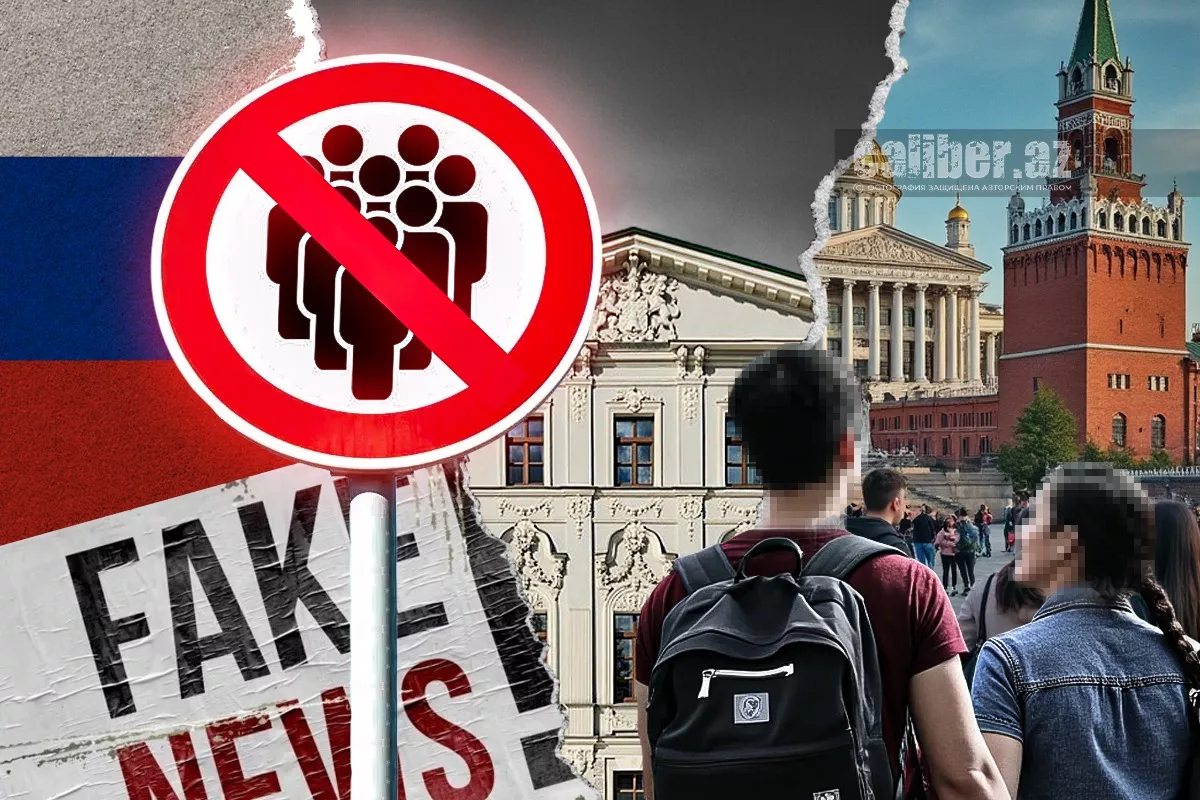Azerbaijanis targeted by Russian security forces Rampant xenophobia
Another anti-Azerbaijani move has been made in Russia—this time in Yekaterinburg. And once again, with deadly consequences for Azerbaijanis, including a citizen of the country. Reports indicate that between two and five people have been killed. Moreover, this bloody rampage has been presented by the Investigative Committee and the Main Directorate of the Russian Ministry of Internal Affairs for Sverdlovsk Region as the result of an operation to detain individuals allegedly suspected of committing a number of crimes in Yekaterinburg over the years. At the same time, as noted in the official statement, “details are not being disclosed at this stage in the interests of the investigation.”
However, according to unofficial information, the reason for the operation against the Azerbaijanis—including the detention of nine members of the Safarov family and over 50 people in total—was allegedly the murder of a certain Azerbaijani national that took place in 2001.
In response to the lawlessness that has taken place, Azerbaijan’s Ministry of Foreign Affairs has lodged a strong protest with the Chargé d’Affaires of the Russian Embassy in the country, Pyotr Volokovikh, who was summoned to the Foreign Ministry. The Azerbaijani side conveyed its expectation that the incident be thoroughly investigated and that those responsible for the violence be swiftly brought to justice.
Unfortunately, in recent times, official Baku has far too often found itself waiting for the results of investigations into anti-Azerbaijani actions carried out on Russian territory. At the same time, Moscow has yet to provide any information about the Azerbaijan Airlines (AZAL) passenger plane shot down near Grozny in late December 2024, despite the fact that all circumstances surrounding that incident are well known. What about this time? Will it be more silence?

It is, indeed, astonishing. Despite the Kremlin’s seemingly neutral rhetoric towards Azerbaijan, events taking place on Russian soil reveal a profoundly different reality. It would be one thing if this were merely about ideological manipulation through Russian media. But what about concrete incidents with fatal outcomes—such as the recent events in Yekaterinburg? And let’s not forget the recent denial of participation to an Azerbaijani MP at an official event in Astrakhan. Or the cyberattack—clearly linked to Russia—targeting Azerbaijani media outlets.
The fact remains: Azerbaijan is the only country in the post-Soviet space that has succeeded in restoring its sovereignty and territorial integrity through military and political means. The country pursues an independent foreign policy, beholden to no one. And perhaps it is precisely this independence that unnerves certain circles in Russia—those who still think in imperial terms and wish to see every sovereign state in the former Soviet sphere cowering in fear and submission.
What emerges is a troubling reality: while, on the surface, the official Russian authorities appear committed to strengthening Russian-Azerbaijani relations, certain politically motivated forces—far from marginal—are playing a very different game. This raises a pressing question: if these actions do not reflect the Kremlin’s official stance, then why do these forces not face any consequences from the relevant Russian institutions? Who will provide a clear and comprehensive answer to this question—one that deeply concerns many?
At the same time, the wave of anti-Azerbaijani incidents unfolding in Russia seems to align with a broader anti-Muslim trend taking root in certain segments of the Russian establishment—one that has become particularly visible of late. This is often framed through the lens of rising anti-migrant sentiment within Russian society. And here, xenophobic and racist attitudes are clearly at play, fuelled and manipulated by those same interested circles. A vivid example is the recent provocation involving fake accusations against Azerbaijani students at the Moscow University of Finance and Law (MFUA), who were allegedly heard chanting extremist slogans—claims that were later discredited.

It is no secret anymore that even some Russian media openly acknowledge the personnel challenges Moscow faces amid the Russia-Ukraine war. As a result, there is a constant need to replenish the ranks of Russia’s armed forces. Migrants are conveniently at hand, and through threats and blackmail, they can be coerced into “voluntarily” participating in the conflict in Ukraine. Yet, there have been repeated cases where promised payments to these recruits never materialized.
Moreover, various sources report that conscription efforts are often heavily concentrated in regions where the majority of residents are non-Russian ethnic groups who are nonetheless Russian citizens.
At the same time, as is often noted—even if mostly anonymously—by Russians themselves on social media, discrimination based on ethnic and religious grounds, combined with chauvinism, has never led to anything good.
And here is another important nuance: in recent months, pro-Russian forces in Armenia have sharply intensified their activities, taking increasingly revanchist and radical positions. Against this backdrop, the plans of the very same anti-Azerbaijani forces entrenched within the Russian political establishment become clear—they aim to destabilize the South Caucasus region. To all those hotheads, let us remind you that the iron fist of the Azerbaijani people remains firmly in place.








